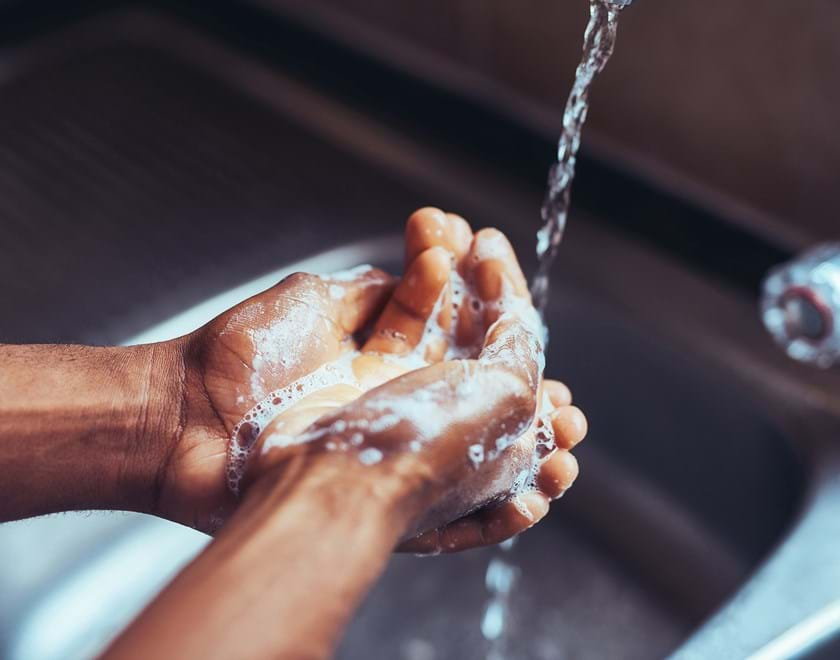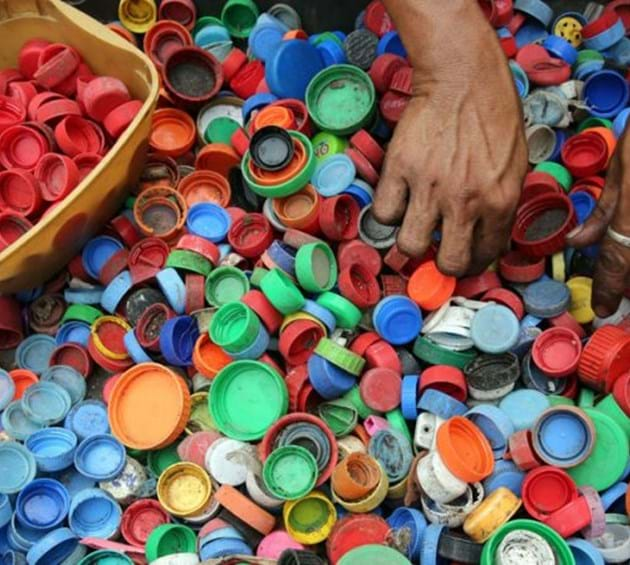Chemical pollution
The use of chemicals should always be transparent and responsible. We take action to ensure the safer use of chemicals across the EU.

The use of chemicals should always be transparent and responsible. We take action to ensure the safer use of chemicals across the EU.

Chemicals are everywhere - in the food we eat, the air we breathe and the products we use. These chemicals have a huge burden on our health and the environment.
But the use of these chemicals is invisible to us. Why and how harmful chemicals end up in our bodies, products and ecosystems remains hidden.
In the EU, there are more than 40 laws to protect our health and the environment from harmful chemicals. Unfortunately, many of these laws are not sufficiently ambitious, or are not implemented consistently.
Chemicals are big business. There are an estimated 100,000 synthetic chemicals in the EU today, and new chemicals are entering the market at an increasing rate. But of the 100,000 chemicals on the market in the EU, we have robust information and understanding on just 500 of them.
That’s where ClientEarth comes in. We use the law to ensure better protection of people and planet against harmful chemicals in three ways:
EU chemicals laws are the most advanced in the world but they still suffer from significant gaps. Groups of chemicals which are highly dangerous for our health, or for the environment, remain mostly unregulated. This includes “forever chemicals”, that get into our bodies and environment and do not break down, or “hormone disrupting chemicals’, that block, mimic or disrupt our natural hormones with dire consequences. Our lawyers work to ensure that EU law is pioneering the control of these harmful substances.
Harmful chemicals – used in factories, in fields, in our homes – can fulfil an essential function for society, like producing medicine or cleaning hospitals. EU law created the tools to allow EU institutions and States to encourage investment in safer alternative solutions and only allow the use of harmful chemicals when no safe alternatives exist. Our lawyers act as the legal watchdog for these decisions. They challenge the authorisations to use harmful chemicals when they think the EU institutions and Member States get it wrong. But when the EU institutions and Member States are working hard to identify and restrict harmful chemicals, we support their efforts. The industry uses powerful lobby groups to fight these decisions. At every step of the decision-making process, our lawyers are there to counterbalance the influence of the industry.
Knowing if a chemical is hazardous is only half the battle. To understand the true impact of a chemical, it’s important to know how it’s used and where it’s found. But today, the chemical composition of materials and products as well as the emissions into the environment (for example from pesticides) remain largely unknown. We’re working to change this. We’re calling for greater transparency and contributing to the creation of a database that will gather information on which products contain harmful chemicals so consumers like you can make informed decisions.

BPA is an extremely harmful chemical that has been used in the manufacture of plastic products like water bottles. It has been shown to wreak havoc with our hormones, with consequences on health, intelligence and fertility. The European Chemicals Agency (ECHA) officially listed BPA a ‘substance of high concern’ in three separate decisions due to its harmful impact on human health and the environment.
PlasticsEurope, the plastics lobby, challenged these decisions before the EU Court. We provided detailed evidence to the Court to support ECHA in the case and the Court concluded that PlasticsEurope’s claims were unfounded in the two first cases, and has yet to decide on the third.
With your support we can continue to fight chemical pollution and protect people and planet.
